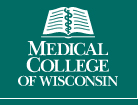Erythropoietin (EPO)+/- Filgrastim (G-CSF) vs. Supportive Therapy Alone for Patients With Myelodysplastic Syndromes
| Status: | Completed |
|---|---|
| Conditions: | Blood Cancer, Blood Cancer, Anemia |
| Therapuetic Areas: | Hematology, Oncology |
| Healthy: | No |
| Age Range: | 18 - Any |
| Updated: | 4/21/2016 |
| Start Date: | December 1997 |
| End Date: | May 2014 |
Phase III Evaluation of EPO With or Without G-CSF Versus Supportive Therapy Alone in the Treatment of Myelodysplastic Syndromes
RATIONALE: Erythropoietin and colony-stimulating factors such as filgrastim stimulate the
production of blood cells. It is not yet known whether erythropoietin with or without
filgrastim is more effective than standard blood transfusions in reducing the need for
transfusions in patients who have anemia associated with myelodysplastic syndrome.
PURPOSE: Randomized phase III trial to compare the effectiveness of erythropoietin with or
without filgrastim with that of standard blood transfusions in reducing the need for
transfusions in patients who have anemia associated with myelodysplastic syndrome.
production of blood cells. It is not yet known whether erythropoietin with or without
filgrastim is more effective than standard blood transfusions in reducing the need for
transfusions in patients who have anemia associated with myelodysplastic syndrome.
PURPOSE: Randomized phase III trial to compare the effectiveness of erythropoietin with or
without filgrastim with that of standard blood transfusions in reducing the need for
transfusions in patients who have anemia associated with myelodysplastic syndrome.
OBJECTIVES:
- Compare the benefit of erythropoietin vs standard transfusion support in reducing
transfusion requirements in patients with myelodysplastic syndromes.
- Compare the clinical response, disease progression, and survival in patients treated
with these regimens.
- Compare the toxicity of these regimens in these patients.
- Evaluate whether adding filgrastim (G-CSF) or increasing the erythropoietin dose will
reduce the transfusion requirement in patients who do not respond to erythropoietin
alone.
- To compare the benefit of erythropoietin versus supportive care alone on quality of
life (QOL) in persons with myelodysplastic syndromes.
OUTLINE: This is a randomized, controlled, multicenter, cross-over study. Patients are
stratified according to morphologic subtype (refractory anemia [RA] vs RA with ringed
sideroblasts vs RA with excess blasts), transfusion requirement (yes vs no), prior
erythropoietin treatment (yes vs no), and erythropoietin level (at least 200 mU/mL vs less
than 200 mU/mL). Patients are randomized to one of two treatment arms.
- Arm I (standard transfusion support): Patients receive red cell and platelet
transfusions for symptoms or to maintain hematocrit level of 25% or above. Patients
undergo bone marrow aspirate and biopsy at 4 months and then every year until
development of acute leukemia or completion of study. Patients with progressive disease
may cross over to arm II after at least 4 months on study and up to 1 year from the
time of randomization. Patients who cross over receive erythropoietin alone.
- Arm II (Erythropoietin): Patients receive erythropoietin subcutaneously (SC) or
intravenously (IV) daily. Patients undergo bone marrow aspirate and biopsy as in arm I.
Treatment continues daily for a maximum of 1 year.
Patients with stable or progressive disease at day 120 receive filgrastim (G-CSF) SC daily
or 3 days a week and erythropoietin SC daily for up to 6 months. Patients with no response
to G-CSF and lower-dose erythropoietin may proceed to a higher dose of erythropoietin.
Quality of life is assessed at baseline, every 4 months during study, and at study
completion.
Patients are followed every 4 months for 2 years, every 6 months for 3 years, and then
annually for 5 years.
ACTUAL ACCRUAL: A total of 118 patients were accrued for this study.
- Compare the benefit of erythropoietin vs standard transfusion support in reducing
transfusion requirements in patients with myelodysplastic syndromes.
- Compare the clinical response, disease progression, and survival in patients treated
with these regimens.
- Compare the toxicity of these regimens in these patients.
- Evaluate whether adding filgrastim (G-CSF) or increasing the erythropoietin dose will
reduce the transfusion requirement in patients who do not respond to erythropoietin
alone.
- To compare the benefit of erythropoietin versus supportive care alone on quality of
life (QOL) in persons with myelodysplastic syndromes.
OUTLINE: This is a randomized, controlled, multicenter, cross-over study. Patients are
stratified according to morphologic subtype (refractory anemia [RA] vs RA with ringed
sideroblasts vs RA with excess blasts), transfusion requirement (yes vs no), prior
erythropoietin treatment (yes vs no), and erythropoietin level (at least 200 mU/mL vs less
than 200 mU/mL). Patients are randomized to one of two treatment arms.
- Arm I (standard transfusion support): Patients receive red cell and platelet
transfusions for symptoms or to maintain hematocrit level of 25% or above. Patients
undergo bone marrow aspirate and biopsy at 4 months and then every year until
development of acute leukemia or completion of study. Patients with progressive disease
may cross over to arm II after at least 4 months on study and up to 1 year from the
time of randomization. Patients who cross over receive erythropoietin alone.
- Arm II (Erythropoietin): Patients receive erythropoietin subcutaneously (SC) or
intravenously (IV) daily. Patients undergo bone marrow aspirate and biopsy as in arm I.
Treatment continues daily for a maximum of 1 year.
Patients with stable or progressive disease at day 120 receive filgrastim (G-CSF) SC daily
or 3 days a week and erythropoietin SC daily for up to 6 months. Patients with no response
to G-CSF and lower-dose erythropoietin may proceed to a higher dose of erythropoietin.
Quality of life is assessed at baseline, every 4 months during study, and at study
completion.
Patients are followed every 4 months for 2 years, every 6 months for 3 years, and then
annually for 5 years.
ACTUAL ACCRUAL: A total of 118 patients were accrued for this study.
Inclusion Criteria:
- At least 18 years of age
- Diagnosis of a myelodysplastic syndrome
- Refractory anemia (RA)
- RA with ringed sideroblasts
- RA with excess blasts (RAEB). RAEB patients must have a bone marrow blast count of
less than 20% and less than 5% blast forms on peripheral blood
- Eastern Cooperative Oncology Group (ECOG) Performance Status of 0 to 3
- Platelet count greater than 30,000/mm^3 (without platelet transfusions)
- Hematocrit less than 30% (pretransfusion)
- Bilirubin less than 3 mg/dL
- Blood urea nitrogen (BUN) less than 40 mg/dL or Creatinine less than 2.0 mg/dL
- Prior epoetin alfa allowed provided dosage was less than 30,000 units per week for
less than 1 month duration
- At least 1 month since prior erythropoietin
- At least 2 months since prior recombinant growth factor
- At least 2 months since prior chemotherapy for other malignancy or autoimmune disease
- At least 2 weeks since prior androgen or steroids for treatment of myelodysplastic
syndromes
Exclusion Criteria:
- RAEB in transformation
- Chronic myelomonocytic leukemia
- Splenomegaly greater than 6 cm below the left costal margin or greater than 3 times
normal size
- Uncontrolled hypertension
- Sensitivity to E. coli-derived proteins
- Sensitivity to epoetin alfa or any of its components (e.g., human albumin)
- Documented iron deficiency. If marrow iron stain is not available, the transferrin
saturation must be greater than 20% or ferritin greater than 100 ng/dL
- Active infection or bleeding
- Other uncontrolled malignancy
- Pregnant or nursing. Fertile patients must use effective contraception.
We found this trial at
28
sites
Click here to add this to my saved trials
675 N Saint Clair St # 21-100
Chicago, Illinois 60611
Chicago, Illinois 60611
(312) 695-1156

Robert H. Lurie Comprehensive Cancer Center at Northwestern University The cancer center was first established...
Click here to add this to my saved trials
West Michigan Cancer Center In 1994, Borgess Health Alliance and Bronson Healthcare Group opened the...
Click here to add this to my saved trials
5301 East Huron River Drive
Ann Arbor, Michigan 48106
Ann Arbor, Michigan 48106
1.877.590.5995

CCOP - Michigan Cancer Research Consortium The Community Clinical Oncology Program (CCOP) is a comprehensive...
Click here to add this to my saved trials
Click here to add this to my saved trials
Click here to add this to my saved trials
Click here to add this to my saved trials
Click here to add this to my saved trials
CCOP - Columbus As one of the original 20 CCOPs, the Columbus Community Clinical Oncology...
Click here to add this to my saved trials
Click here to add this to my saved trials
300 East Locust St., Ste 350
Des Moines, Iowa 50309
Des Moines, Iowa 50309
(515) 244-7586
CCOP - Iowa Oncology Research Association The Iowa Oncology Research Association (IORA) was established by...
Click here to add this to my saved trials
Click here to add this to my saved trials
Click here to add this to my saved trials
Click here to add this to my saved trials
Click here to add this to my saved trials
Click here to add this to my saved trials
Click here to add this to my saved trials
Click here to add this to my saved trials
8800 W. Doyne Avenue
Milwaukee, Wisconsin 53226
Milwaukee, Wisconsin 53226
(414) 805-6840

Medical College of Wisconsin Cancer Center Cancer touches everyone in our community, and for many,...
Click here to add this to my saved trials
Click here to add this to my saved trials
533 Bolivar Street, Room 420
New Orleans, Louisiana 70112
New Orleans, Louisiana 70112
(504) 568-3435

MBCCOP - LSU Health Sciences Center Established in 1990, the Stanley S. Scott Cancer Center...
Click here to add this to my saved trials
Click here to add this to my saved trials
Click here to add this to my saved trials
Click here to add this to my saved trials
Click here to add this to my saved trials
Click here to add this to my saved trials
Click here to add this to my saved trials
CCOP - Carle Cancer Center The Carle Cancer Center Community Clinical Oncology Program (CCOP) in...
Click here to add this to my saved trials


